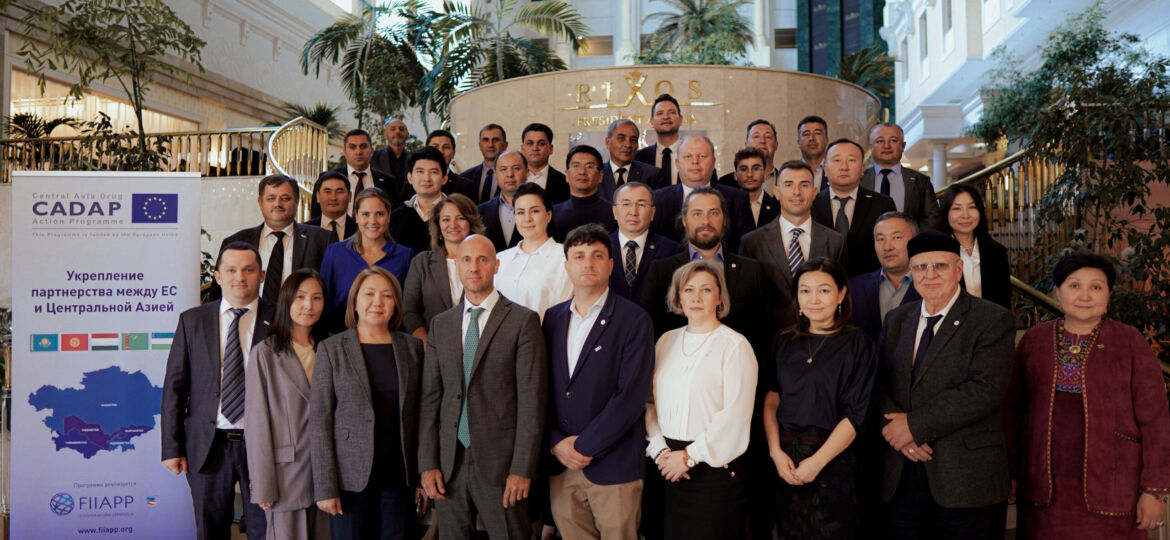
On September 28-29 in Astana CADAP has hosted a regional dialogue on drug policy – a meeting attended by representatives of Central Asia drug control agencies, European institutions and expert organizations such as Spanish Government delegation for the National Plan on Drugs, European Monitoring Centre for Drugs and Drug Addiction (EMCDDA) , Intelligence Centre against Terrorism and Organised Crime (CITCO), Spanish Ministry of Interior, European Union delegations in Central Asian countries, representatives of the civil society sector, international experts, international organisations and other regional partner programmes.
The objective of the dialogue was to foster a dynamic discussion among key stakeholders in Central
Asia; to provide an overview of the drug situation in Central Asia; to discuss current situation in
the field of drug policy, threats and challenges of drug policies in supply control to present the
results of country assessments held recently and provide key recommendations.
As it was emphasized by Cosimo Lamberti, EU representative, “The regional component is very important for the European Union as it brings best possible drug harm reduction practices”.
Participants were overviewing the current situation and key issues, identifying and learning from
European experience and country level good practice, and resetting the drug control system to
focus on health and human rights. A separate session was dedicated to education of stakeholders
as an effective tool for successful drug policy design and implementation.
The Regional Dialogue on Drug Policy is another important step forward to facilitate the broader
consultation and cooperation between European institutions and Central Asian authorities.
According to Ernest Robello, CADAP 7 Director, this kind of cooperation is essential: “A balanced
approach to the issue of drugs and drug policy can only be achieved if there is stronger
cooperation. Strengthening the dialogue is imperative in order to formulate consistent and
effective global responses to drug-related challenges”.


